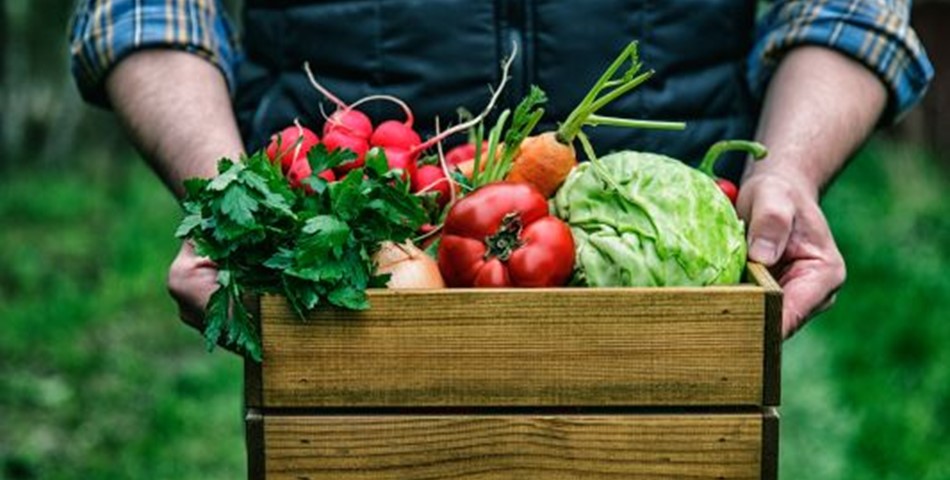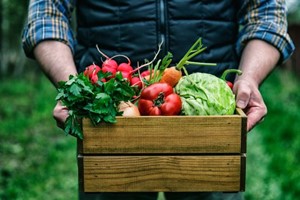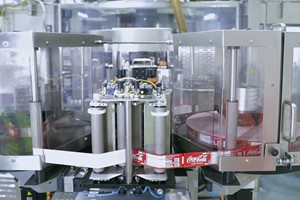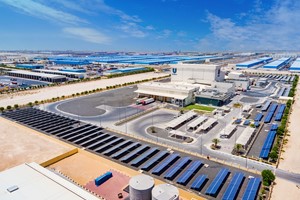Industry bodies are pushing for the UK government to champion organic as the future of farming
Leading organic farming body OF&G (Organic Farmers and Growers) has published a new manifesto entitled ‘Championing organic within agricultural policy’ which highlights the key advantages of the organic approach in response to the current unprecedented upheaval in the farming sector.
The manifesto calls for policy recognition of organic and highlights the key advantages of the organic approach. These include issues such as global standards, transformative farming practices, food integrity, carbon sequestration, biodiversity enhancements and market opportunity.
Roger Kerr, OF&G chief executive, believes that terms like ‘regenerative’ and ‘agroecological’, which lack legally defined, whole-system standards, create increasing confusion in the industry, and greater advocacy of organic would in turn alleviate this.
Why organic is the future
With an increasing threatening climate crisis on our hands, the food industry has a big task at hand to reduce emissions and create a healthier environment.
Roger argues: “Policymakers must acknowledge organic’s potential to contribute positively to the challenges we all face, in alleviating the social and environmental impacts of our farming and food system.
“OF&G is not suggesting every UK farm embrace organic conversion, but that a range of diverse approaches, including organic, will help protect our environment while delivering the resilience and adaptations necessary for UK farmers to continue to produce food in the face of the increasing climate volatility that we will see in the coming years.
“Everyone has a vested interest in supporting more benign, sustainable practices to safeguard the future. Environmentally favorable farming practices are undergoing re-invention and rebranding, however organic provides the only clear, current and verified solution.”
In fact, the OG&F manifesto suggests that if 10% of UK farmland was organic, we would save at least a 9.4 million tones CO2e in greenhouse gas emissions (GHG) and benefit from increased carbon sequestration worth over £188 million annually in carbon permit trading terms.
Organic food is growing in popularity
Not only will a shift of focus to organic farming benefit the environment, it will also satisfy a growing consumer demand.
The Soil Association’s Organic Market Report 2022 showed that demand for organic food is at an all-time high. The organic market has achieved its 10th consecutive year of growth, with sales increasing by 23% in the last two years to reach over £3 billion. This offers a huge opportunity for the fine food sector, as well as for farmers embarking on a transition to organic.
Liz Bowles, Soil Association director of farming and land use told Specialty Food: “We welcome the launch of OF&G’s organic manifesto and support their efforts to highlight the advantages of an organic approach to farming – something we clearly hold dear. There has never been a more critical time to highlight the benefits of the organic sector with its clearly defined standards, especially when concerns around food security, the environment, nature, and health are so prevalent.
“This is why the Soil Association has been working with DEFRA to help them support the transition to organic and agroecological farming systems, with the notable outcome of the introduction of an organic standard into the Sustainable Farming Incentive (Defra finally breaks silence). We will continue to highlight that the Government cannot disregard the weight of evidence which shows that the organic farming sector offers immense benefits for biodiversity, animal welfare and healthy soils.”
Organic food products are not only suitable for healthy human growth and well-being but also helps to maintain the balance of the ecosystem since the process of organic farming does not create any problem to the soil and prevents water contamination as well due to the avoidance of the use of synthetic inputs in the agriculture that helps to maintain the natural balance of the within the ecosystem and protects dominance of some species over the others. Organic Food production also helps to fight the issue of global warming to some extent because these products are mainly distributed locally which means consumption of less energy on transportation.
The rising awareness towards health and food safety among the consumers across the globe is driving the global organic food market
Organic food products are safer than the widely available ones because there is no utilization of fertilizers, pesticides, fungicides, etc. when they are grown. Moreover, there are no traces of chemicals on the cultivation land and the organic animals are also raised without pushing antibiotics or hormones into their system. Organic food products cost 15 to 35 percent more than other products as supply is not being distributed uniformly. Storage cost of these products is also high and certification for growing these products, per acre costs INR 50,000. However, the working Parents are very concerned about the health of their children and willing to spend more to ensure that they get better and safer food than conventional adulterated food.
The key drivers for the global organic food market are increasing per capita income, growing awareness among consumers for health and food safety, emerging concerns for the environmental issues, major lifestyle changes among the younger age-group. The presence of pesticides in food products results in several diseases like asthma, birth defects, cancer, reproductive dysfunction, diabetes, autism, Parkinson’s, and Alzheimer’s diseases and much more. The organic food his thus been grown without the usage of genetically modified toxic chemicals, organisms, fertilizers, or pesticides. Moreover, Organic farming is mainly dependent on animal and green manure for the fertilization of crop; water-soluble mineral fertilizers are usually not approved. Compared to this, the mineral phosphorus fertilizer used in convention farming contributes to increased cadmium concentrations in agricultural soils in long run and this poses a high risk to human health because the food is the dominant route of human exposure to cadmium in non-smokers that may impair lung function and enhance the risk of lung cancer. Thus, the consumption of organic food is mainly considered to be a safer option for traditional food.












